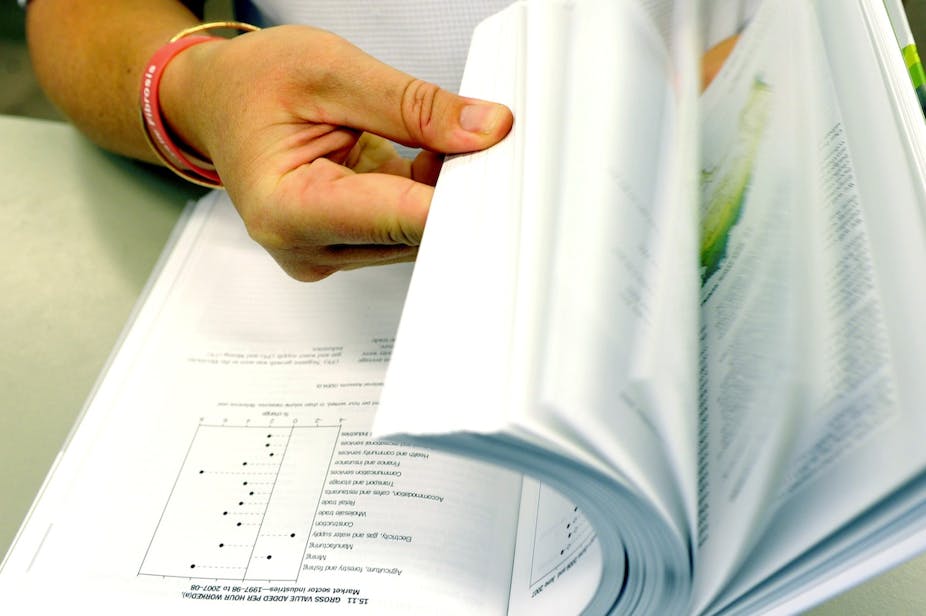A large portion of commentary on foreign investment in Australia is based on scant data, as recent submissions to the inquiry into foreign investment in residential property show.
At the moment it seems the only body collecting any data on this sensitive issue is the Foreign Investment Review Board, and that appears limited. Even the Australian Bureau of Statistics and Reserve Bank admitted to the O'Dwyer inquiry its staff rely on trade magazines and newspapers to identify foreign real estate purchases.
The concept of foreign investment
In economics investment means the flow of additions (positive or negative) to a stock of assets, or store of value, over time in the economy. Investment is important because it contributes to the productive capacity of the economy. Residential property investment increases the flow of services from housing.
The term foreign investment is very often loosely used. It includes additions to assets by foreigners, such as internally financed additions or improvement to the assets, or externally through the purchase of new equity. But it also may include transfer of ownership of existing assets from local to foreign, such as through purchase of existing equity. By itself this would leave the stock of assets unchanged.
Prices in transactions are subject to supply and demand. They can vary from increases or improvements to production, through to speculation as in the lead up to the global financial crisis. This is another reason why the measurement of foreign investment may not be able to easily distinguish between additions to assets and the exchange of existing assets. Moreover the foreign exchange transactions which may be used to identify foreign investment do not record the reasons for the transaction.
Many foreign investment transactions involve selling and buying by entities which are themselves a mixture of domestic and foreign ownership. The IMF has rules about the how to categorise the various levels of foreign ownership involved in the transactions. “Direct investment” is that where a resident in one economy has control or a significant degree of influence directly or indirectly in the management of an enterprise resident in another economy. A rule of thumb is more than 10% of the worth of the entity is involved in the transaction.
Data collection needs resources
As in the case of any data, the quality of foreign investment data is only as good as the amount of resources devoted to the collection, and that has been determined historically. There are primarily two sources of data for foreign investment in Australia, the FIRB and the ABS.
The state titles and transfers offices do not record the nationality of parties in property transfers. The addition to cost for improving data collection needs to be weighed up against the benefits of the additional information gained from that data. For national data, this is invariably a political question, not only in determining the total funding or addition for data collection, but also within that the allocation to each area, as indicated in the ABS submission.
The Treasury budget documentation provides no plan to increase ABS resources, nor is the purpose of expenditure identified (except for the Census).
Property as a special category of foreign investment
The difficulties of recording foreign investment data are widespread - Australia is one of the few countries that produce data of any sort on foreign ownership of land.
In the case of real estate, the stock of assets includes land (and improvements), buildings and other constructed physical structures. A problem for measurement of property as foreign or domestically owned arises because the land itself has to stay on Australia’s national balance sheet as an asset even though it may have a foreign owner. This involves separate valuation of the land. Otherwise the land would appear in the balance sheets as an asset of another country.
The ABS data on real estate cannot be split between foreign and local ownership, nor between commercial and residential. The ABS includes foreign investment in property in purchases of Australian equity in “other business services” which includes legal, accounting, marketing, computing and scientific services, amounting to about A$33 billion in 2013. The data is obtained by survey of the businesses involved.
FIRB data is collected for a different purpose
The ABS also makes use of data from the FIRB on investment intentions by foreign investors outside the Australian corporate structure, estimated at a value of A$24 billion for 2013. The FIRB data are based on applications it receives. It would only include the value of foreign investments where the amounts are greater than the threshold requirement for applications, currently A$248 million for business investment from most other countries. Lower or zero thresholds apply for real estate or for government investors. It is not clear how repeat and unsuccessful applications are accounted for.
Emigrating Australians increase foreign investment assets - by another A$48 billion. Overall foreign holdings of Australian real estate appear to add about 3% to total foreign investment. The RBA estimates that foreign investment is at most 5-10% of dwelling turnover value and half that in volume because the investment is in higher value houses. This leaves the likely proportion of total housing stock which is foreign owned unknown but likely to be very small.
What is needed?
The ABS recommends that if comprehensive data on foreign investment in real estate is a priority, the FIRB and the state offices for transfers and titles could be required to collect the data. The data required, according to the ABS, would include:
- the market value of property transacted
- settlement date
- residency of investor
- Australian residency status of purchaser
- seller residency, and
- whether purchaser is a corporation or individual.
Whether the foreign investor is a government could be added to the list. While the ABS proposal would need to be costed and the political will to be implemented, it appears to be a sensible suggestion to improve the data in this area.

